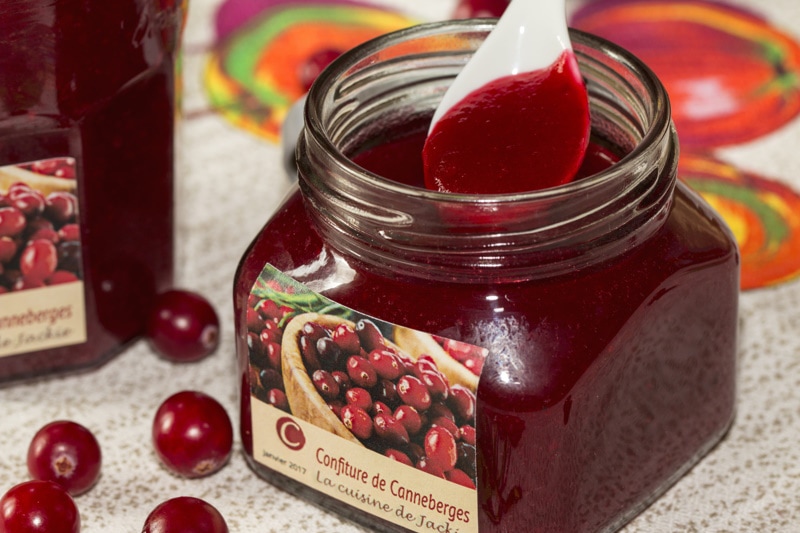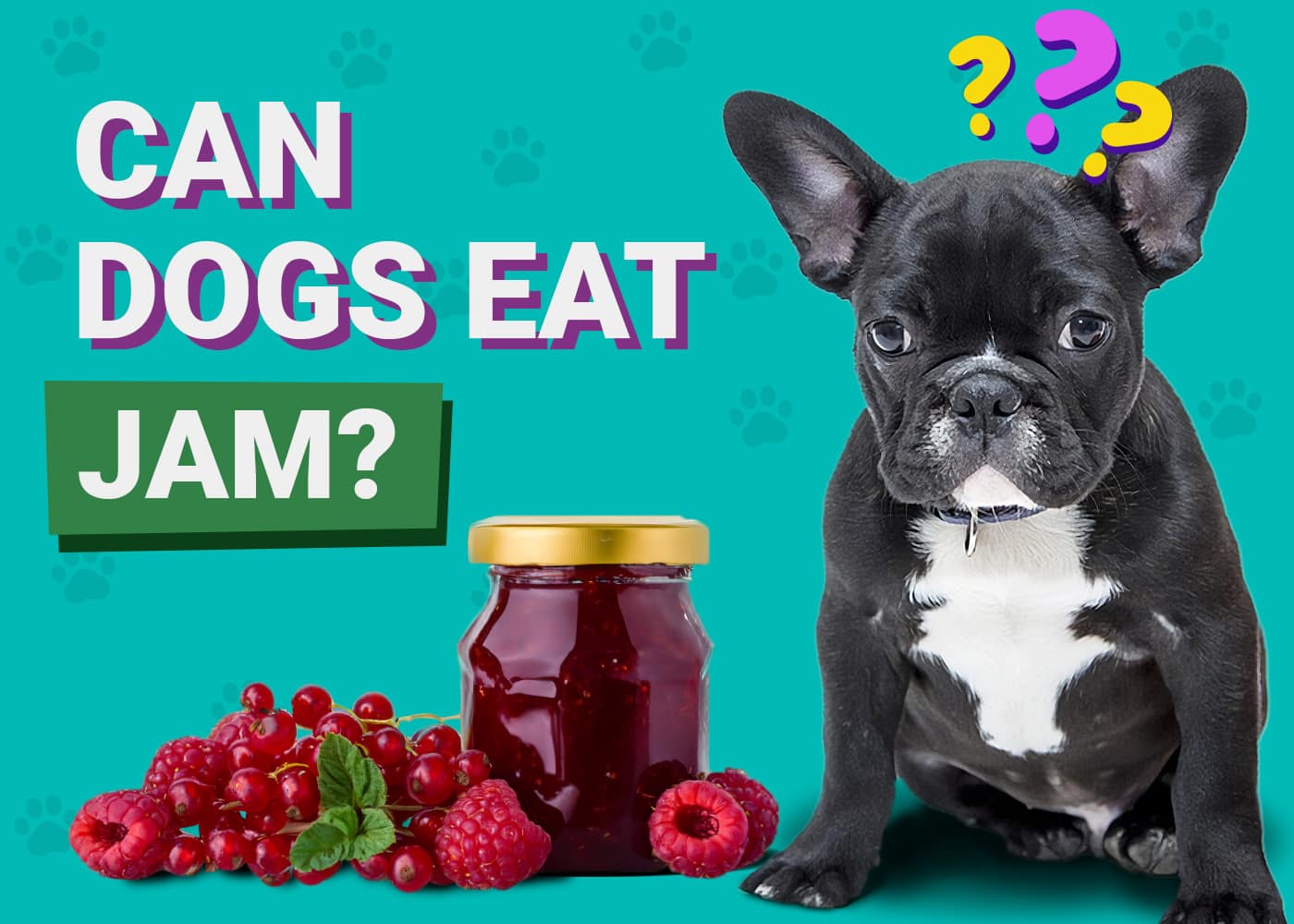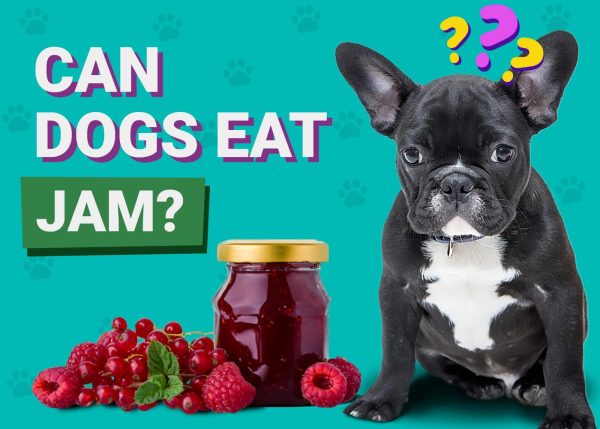Perhaps your furry friend got into a jar of this sweet spread, which is why you’re wondering if jam is safe for dogs to eat. If jam is safe for humans, can dogs also eat this thick sugary food?
The answer is that it depends on what kind of jam your dog consumes. However, in general, all jams are not recommended for pets and some are actually toxic. Jams contain a large amount of sugar and will be bad for the overall health of our furry friends. In addition, if your canine eats jam made from fruit that is toxic to dogs or xylitol, it can lead to dangerous situations. In this case, you need to contact your veterinarian immediately for more guidance.
Why Is Jam Bad for Dogs?
Sugar, fruit, pectin, and acid (like lemon or other fruit juice) are the main ingredients used to make jam. Typically, jam-making fruit is crushed or chopped before being slowly cooked with sugar until it thickens. Dogs can safely consume pectin in moderation. Pectin is a naturally occurring starch that gives jam its desired texture. The problem with this sweet food is its high sugar content.
Jams contain a lot of added sugars in addition to the natural sugars found in fruit. Under no circumstances should your dog consume the large amount of sugar found in jam. If the fruit is safe for canines, they will be safe eating a small amount accidentally but you shouldn’t give them any intentionally.

What Should I Do If My Dog Ate Jam?
What kind of jam your dog ate will determine how urgent the situation is if they ingested jam. While some jams, like blackberry or strawberry, are not toxic for dogs, others, like grape jam, are potentially dangerous. Check the ingredient label for the jam your dog has eaten and contact your vet as soon as possible if you think they may have eaten something that contains harmful fruits.
The type and amount of sugar in this sweet food are other elements that can seriously harm your dog. Even though added cane sugar in the form of granules or syrup is detrimental to their health, some sugar-free jams contain xylitol, which is even worse. This natural sweetener substitute is very toxic to dogs causing hypoglycemia and possibly liver damage.1 So before offering your canine any food, always double-check the ingredients.
The Harmful Effects of Sugar on Dogs
Although sugar isn’t toxic to dogs, larger doses on a regular basis are possibly harmful. Taking in a lot of sugar or tasty sugary treats over time may cause a number of health problems for your canine,2 including metabolic changes, obesity, an upset stomach, and diabetes.
Our canines can safely ingest a variety of fruits that hold natural sugars and if consumed in moderation, this is typically beneficial for them.

Which Fruits Can Dogs Eat?
Although some fruits, like grapes (and raisins) are poisonous to dogs, there are many other fruits that they can safely eat. See below which fruits are safe but be sure to consult your vet before adding any extras to your pet’s diet.
- Watermelon
- Apples (core removed)
- Blueberries
- Cantaloupe
- Bananas
- Cranberries
- Peaches (stone removed)
- Cucumbers
- Mango (stone removed)
- Oranges
- Pears
- Pineapple
- Strawberries
- Raspberries
Before giving fruit to your dog, make sure to wash it thoroughly. Don’t forget to remove the stems, leaves, pits, seeds, or rinds. Feed them a small amount that has been cut into small pieces. Due to the high sugar content, you should never give them canned fruit.
Fruit can be served as individual treats or mashed and mixed into your dog’s meals. Small pups have the risk of choking, so make sure to cut the fruit up into small pieces.

Human Foods to Avoid Feeding Your Pets
Here’s a list of the most toxic human foods to keep your furry friend away from. As always, if you think your pet may have consumed any of the listed foods, please keep track of how much they may have ingested and call your veterinarian right away.
- Chocolate
- Alcohol
- Coffee
- Macadamia Nuts
- Caffeine
- Grapes
- Raisins
- Onions
- Chives
- Garlic
- Xylitol
- Yeast Dough
Conclusion
So, should dogs eat jam? The answer is no. Even as a one-time treat, jam shouldn’t be a part of your dog’s diet. Most jams from the grocery store are loaded with sugar and preservatives, which are bad for their health. In general, should they get hold of some jam they may experience an upset stomach. For diabetic dogs or jams with ingredients such as xylitol you should contact your veterinary surgery straight away for advice.
Jams don’t offer any nutritional advantages to dogs, so it’s best to avoid giving them to your pet. There are many other healthier treat options out there. If your furry friend enjoys sweet things, you can feed them dog-friendly treats, like peanut butter designed for canines or a small portion of safe fruit.
Related Reads:
Featured Image Credit: Silvia, Pixabay











